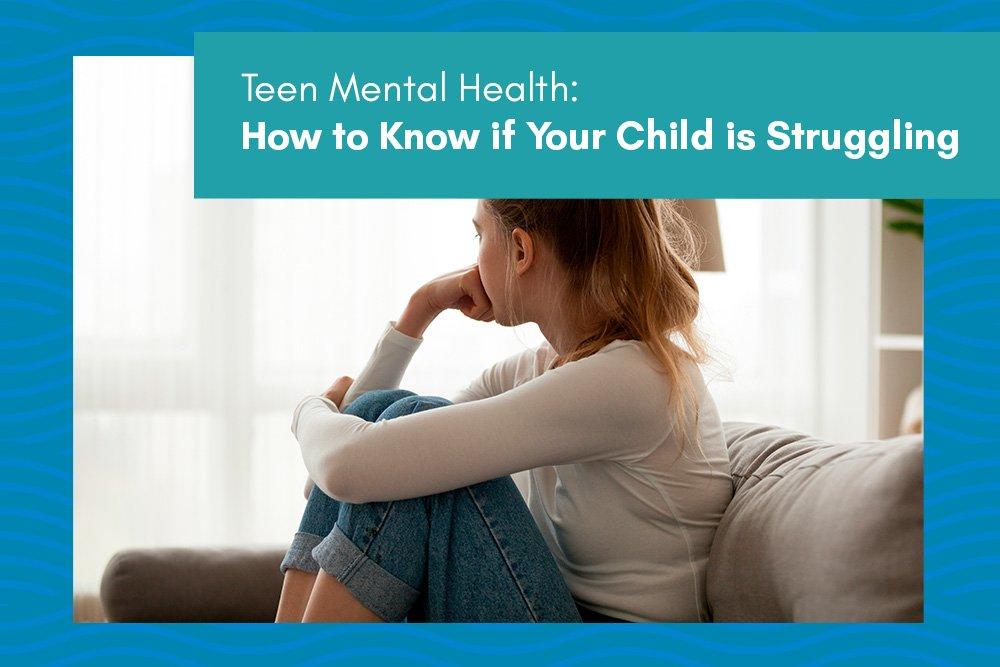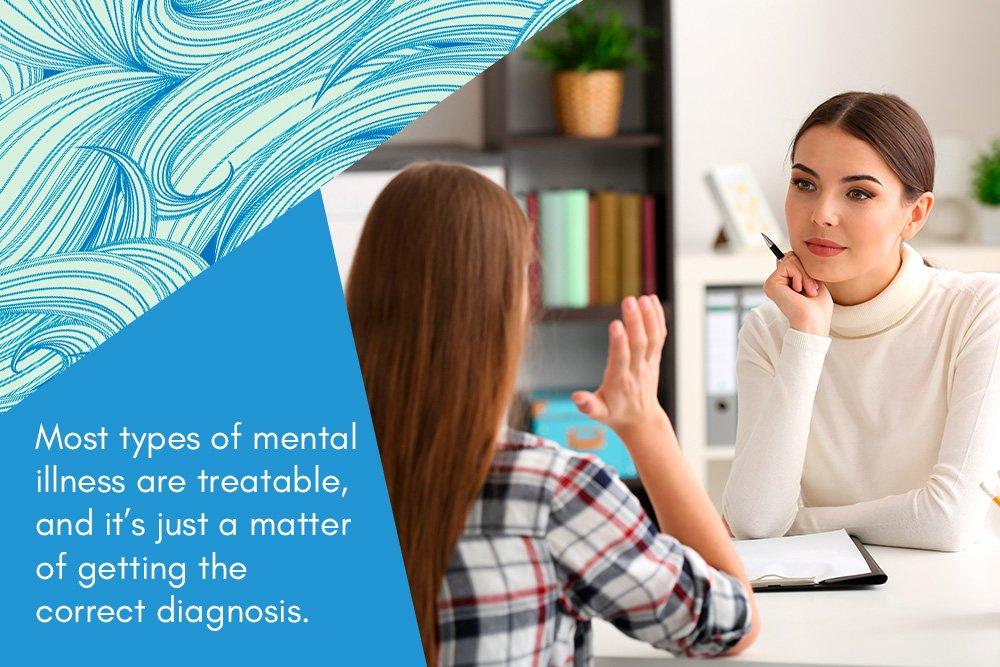
The prospect of seeing any child struggling with emotional issues is heartbreaking, and no parent wants to readily accept that their child may be dealing with a mental health condition. However, mental illness is more common in teens than most people realize, with one in six children in the United States facing mental health issues. This makes it critically important for parents to be aware of early warning signs so they can get their child help as soon as possible.
The National Alliance on Mental Illness reports that 20 percent of all teenagers between 13 and 18 struggle with mental health issues. Over half of all people who experience a mental health disorder see the onset of symptoms by age 14. Even though each patient and type of mental health issue has its own unique warning signs, there are some common elements that parents must be on the lookout for.
While it is a normal part of life for children to have some difficulty constantly adjusting to all of the issues they must face growing up, sudden and prolonged behavioral changes should be taken as a potential warning sign of a mental health issue. For example, if a teenager has occasional episodes of anger or now and again stays out late, it’s probably not a reason to be worried. Short-lived adolescent mood swings and irregular episodes of acting out are usually a product of hormonal changes in teenagers as part of the ongoing developmental process. However, if the behavior persists or there is a combination of behavioral changes, it is a good idea to talk to your healthcare provider.

Most types of mental illness are treatable, and it’s just a matter of getting the correct diagnosis. However, identifying the signs of mental health issues in children can be a little tricky, and the warning signs in teens can vary depending on the condition. As a parent, it is vital to learn everything you can about mental health issues to help you identify the signs in your child’s behavior before it affects their emotional development and their ability to learn. Here are the ten major symptoms to watch for that may indicate your teen is struggling with a mental health issue:
1) Social Withdrawal
Teens who are usually social and then suddenly lose interest in hanging out with friends and family may be in the early stages of clinical depression. This is especially true for teens who also begin to isolate themselves from others.
2) Sudden Eating or Weight Changes
Excessive weight loss or gain is often a sign a teen has become afflicted with an eating disorder. According to the National Eating Disorders Association, 50 percent of all teenage girls and approximately 30 percent of teen boys manifest unhealthy eating behaviors such as skipping meals, fasting, purging, and laxative abuse to lose or keep from gaining weight. Conversely, excessive eating and/or weight gain is also a warning sign of a possible binge eating disorder.
3) Poor Hygiene
Sudden neglect of personal hygiene, such as forgetting to shower, brush their teeth, comb their hair, or change their clothes, often indicates a deeper issue. A noticeable change in these behaviors can be caused by depression and other conditions like bipolar disorder.
4) Mood Swings
All teenagers can be moody at times, but parents need to watch out for things out of character, such as sudden and unexplained changes in attitude and behavior. These can include but are not limited to excessive optimism, abnormal aggression, and impulsive behavior.
5) Loss of Self Esteem
Transitory feelings of sadness or shame tend to crop up now and again for teens for various reasons. However, a prolonged loss of self-esteem where your teen shows signs of struggling with managing their daily life may mean a serious problem is lurking.

6) Loss of Interest in Extracurricular Activities
Depression tends to make people lose interest in almost everything they enjoy. A sudden loss of overall interest in once-loved activities and hobbies, such as sports and church, is a sure sign something is not right with your teen.
7) Academic Distress
While even the best student may have the occasional slip, a sudden drop in overall grades for consecutive semesters signifies that your teen is struggling with an emotional issue. This is especially true if a straight-A student suddenly starts getting Cs or worse. If you’ve ruled out bona fide medical issues like dyslexia, anxiety, depression, or another mental health issue may be at fault.
8) Sleep Issues
While most parents can readily attest that teenagers love their beauty rest, sudden changes in typical sleep patterns, like increased sleep or insomnia, may be a sign of emotional issues. While most teens need eight to 10 hours of sleep each day, studies show that about 90 percent of children experiencing depression also experience sleep problems.
9) Lack of Motivation or Drop In Energy
While teens can show occasional indications of physical or mental fatigue for entirely benign reasons, children who exhibit extreme signs of fatigue may be struggling with an underlying physical or emotional condition. If possible physical causes like anemia have been ruled out, emotional issues may be the cause.
10) Self Medication
Teens who suffer from undiagnosed mental health issues often turn to self-medication as a coping method.
When to Seek Help

If you notice your teenager is showing five or more of these ten symptoms almost every day for at least two weeks, they may very well be struggling with an undiagnosed mental disorder. If you think your teen is in danger of harming themselves or others, it is critical to not be afraid to ask for help. A qualified mental health professional can prescribe an effective treatment plan to help your teen get the needed support. Remember to refrain from passing judgment and approach the issue from a place of compassion and understanding and not bombard your teen with accusations or too many questions.
Where to Get Help

While you can seek the advice of a mental health professional, there are also totally free and completely anonymous screening tools available online at MHAScreening.org that can show if a person is exhibiting signs of a mental health condition. The screening tools can help start a conversation with your teen’s health care provider. If you think your teen is at immediate risk of taking suicidal action, the National Suicide Hotline at 1-800-273-TALK has trained crisis counselors available 24/7.
In order for parents to help their teens who may be struggling with mental health concerns, they must know what to watch for, take symptoms seriously, and be willing to seek help when needed. In addition to getting professional counseling help, there are other steps parents can take to help their teenagers deal with life’s stresses that can be the trigger for more serious emotional issues. Be Still Float wellness spa in Jacksonville, Florida, provides a number of therapeutic treatment options of stress therapy in Jacksonville that have been clinically proven to help reduce stress and anxiety. These include float therapy and full-spectrum infrared sauna therapy, as well as massage therapy and sound healing in Jacksonville. Visit them online at BeStillFloat.com or call 904-593-2367.

On a Personal Note
This topic is close to the heart of Be Still Float Studio owner, Gina. Gina started the studio because they have two teenagers and saw many young people dealing with anxiety. Be Still Float Studio offers a safe space.

Student & Teacher Summer Float Special
20% discount for students and teachers for the summer. Must provide valid ID.












